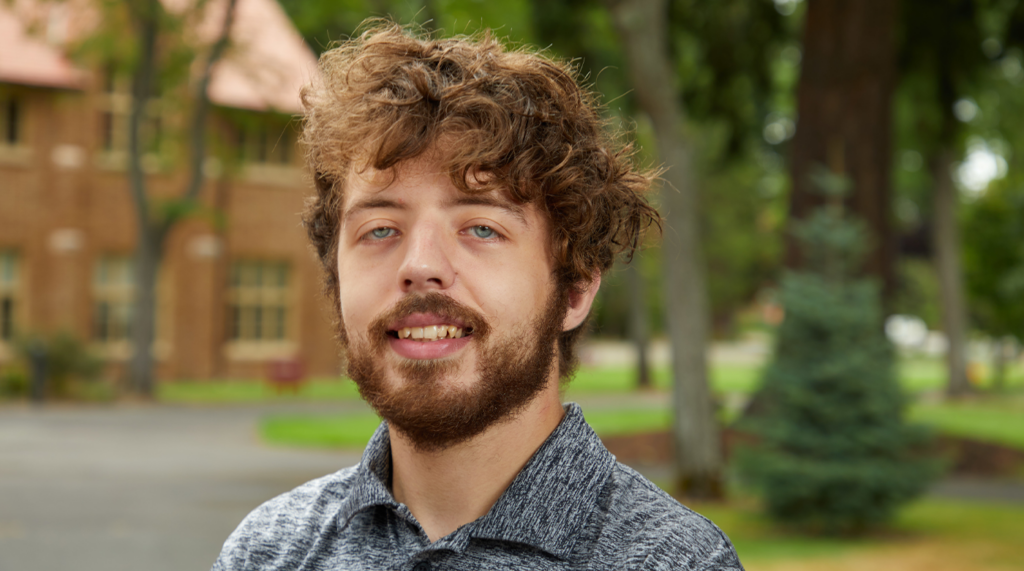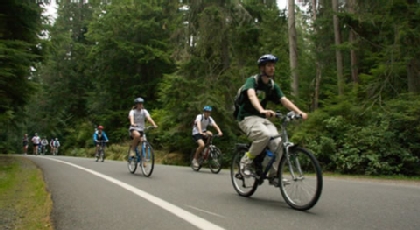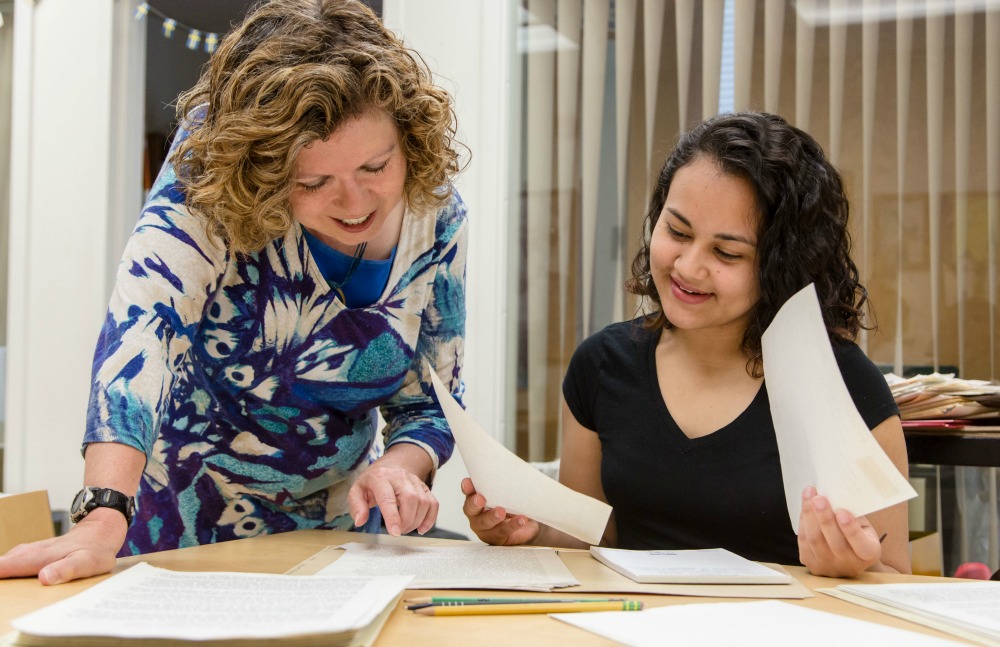Page 359 • (12,695 results in 0.055 seconds)
-

central highlands of Mexico and back to the lands of the Nisqually peoples.Originally from Arizona, Jakowchuk entered PLU with a dance scholarship, tentatively planning to study history and become a teacher. But a physical anthropology class in biological diversity with department chair Dr. Bradford Andrews introduced her to a field—and a way of seeing the past—that piqued her interest. And then in Dr. Andrews’s introduction to archaeology course, Jakowchuk said she just fell in love with the field
-
February 21, 2008 Dealing in historical coins is rare gift Todd Imhof ’86 wasn’t planning a career in rare coin dealing when he left PLU with a degree in political science. In fact, he was leaving for New York to work in the banking business at Chase. Then a friend from high school pulled him aside and told him about a business idea to sell rare coins. Imhof jumped in, begging off Wall Street and opening Hertzberg Rare Coins in Tacoma. “I found myself intrigued by both the coins and the
-
personally:Through doing research in Oaxaca, I developed life-long friendships and unforgettable memories. I’m already planning trip number three! In addition to the wonderful connections that I made with my host family, friends from the nearby language school, and the staff at INSO, I also further realized my interest in sustainable agriculture, which I have since grown passionate about. The water theme worked it’s way into my Hispanic Studies Capstone, entitled Narrative Representations of the Oaxacan Water
-
253.538.6393 www.plu.edu/stem-education munroam@plu.edu Andrea Munro, Ph.D., Director There is a need for excellent teachers with strong content knowledge in Science, Technology, Engineering, and Mathematics (STEM) who are able to teach using culturally sustaining pedagogy. The STEM Education minor is supportive of, and connects to PLU’s focus on diversity, justice, and sustainability and provides a program for students to explore teaching as a vocation. This interdisciplinary program is
-
open to the public. Refreshments will be provided. Please RSVP for planning purposes.Event DetailsTime: 4 p.m. Date: Saturday, Feb. 17 Place: Microsoft Auditorium, Seattle Public Library 1000 4th Ave. Seattle, WA 98104RSVP for Premiere PAUL O. INGRAM LECTURE Indigenous Environmentalism as Spiritual Responsibility 7 p.m. | Tuesday, Feb. 20 | Anderson University Center – Scandinavian Cultural Center Michelle M. Jacob is a professor of indigenous studies and director of the Sapsik’ʷałá (Teacher
-

before, but on a professional level,” Lindhartsen said. In just the 30-year history of the individualized major, PLU students have designed degrees in digital media, Indigenous studies, global health, and environmental education. To do this, students draw from PLU courses and develop their expertise through extensive and rigorous conversations and planning with a committee of faculty who support and guide them. “You take courses from all around the university, as well as experiential learning, like
-
instituted, and American Chemical Society approval of the program was obtained in 1964. Remodeling of the third floor of Ramstad Hall gave piecemeal accommodation for new faculty and instrumentation by cannibalizing classrooms, restrooms, hallways and staircases. Planning for new science facilities began in earnest with a consultant’s report in 1966 stating: “The conclusion is inescapable. The University must plan a new building to house the Science Division.” However, the price tag and other
-

use public transportation). There are a lot of great benefits.” Many departments and organizations around campus were involved in planning for OTR. Faculty members were given the opportunity to provide input into possible trips that they would find interesting. Deane said that the chocolate factory tour scheduled this year was a new idea presented by a geo science professor. Other department contributions included the Volunteer Center, Campus Ministry and faculty members from all over campus
-

.” Abbie Welch, ‘19 Members of Phi Alpha Theta, PLU's History Honors Society, hike at Mt. Rainier A few important tips for planning: work with your advisor to choose the best time to take HIST 301, our required course on historical methods and research. We offer one section of this class in the fall semester only. Think ahead to your capstone! HIST 499 is offered once a year, always in spring semester. Most students complete this in their senior year, but it might be best for you to take it in your
-
Bachelor of Arts or Bachelor of Science MajorFor either the Bachelor of Arts or Bachelor of Science degree, the student must take our introductory core sequence (BIOL 225 and 226) and a semester of genetics (BIOL 330). Completion of the two-course introductory core with grades of C- or higher is required before upper-division biology courses can be taken. Furthermore, BIOL 330 must be completed within five semesters of starting the introductory core series. To ensure breadth of study in biology
Do you have any feedback for us? If so, feel free to use our Feedback Form.


